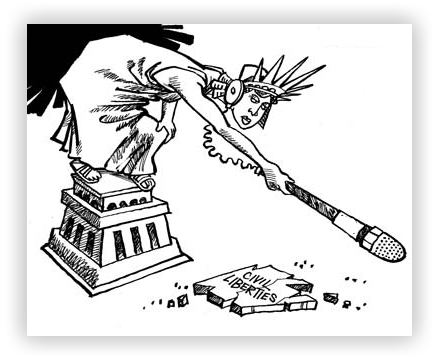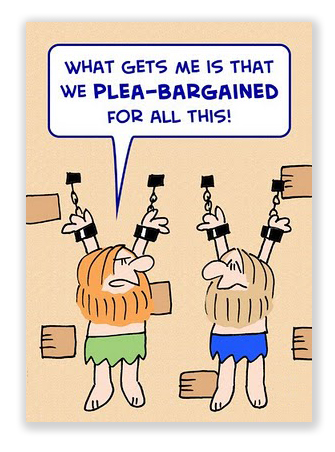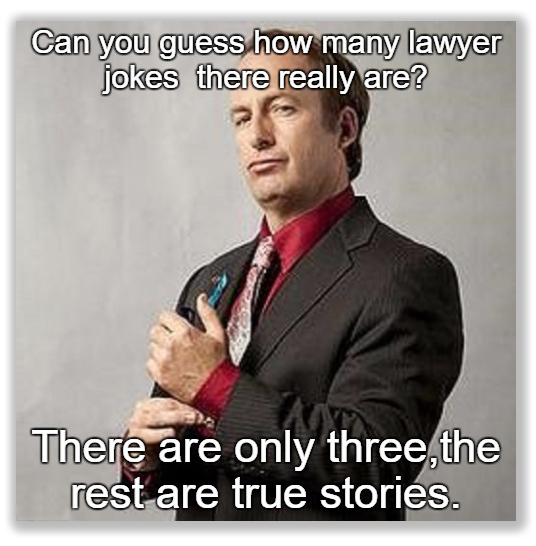We post news and comment on federal criminal justice issues, focused primarily on trial and post-conviction matters, legislative initiatives, and sentencing issues.

SOME DAYS YOU GET THE BEAR…
 Billy Walters, convicted of insider trading charges in 2017, has filed a Bivens action against five law enforcement officials – including former SDNY US Attorney Preet Bharara – seeking a holding that his due process rights were violated when agents leaked confidential grand jury material to The Wall Street Journal and The New York Times, intended to “tickle the wire” by enticing investigation targets to implicate themselves on wiretaps. The leaks continued for more than a year, with 13 different stories about the investigation.
Billy Walters, convicted of insider trading charges in 2017, has filed a Bivens action against five law enforcement officials – including former SDNY US Attorney Preet Bharara – seeking a holding that his due process rights were violated when agents leaked confidential grand jury material to The Wall Street Journal and The New York Times, intended to “tickle the wire” by enticing investigation targets to implicate themselves on wiretaps. The leaks continued for more than a year, with 13 different stories about the investigation.
(A Bivens action, for those who are joining us late, is an action for money damages alleging that federal agents or employees violated one’s constitutional rights. It is so named for the case establishing the right – now rapidly being diminished – that case being Bivens v. Six Unknown Named Agents, 403 U.S. 388 (1971), in which Mr. Bivens sued federal drug agents who kicked down his door, searched his apartment, and arrested him without a warrant for a drug crime that was never prosecuted).
Billy’s lawyers complained about the leaks at the time, but the US Attorney denounced the complaints as “false’’ and “baseless accusations that are undermined by the facts.’’ Only after the judge permitted Billy some discovery into there origin of the leaks did the US Attorney change his tune, admitting that a senior FBI agent had in fact leaked information and would be punished for it.
But evidence provided to the court showed that Bharara himself, along with a team of five other top prosecutors under him, were aware for two years that the FBI was leaking false information about Billy to the press. “While expressing outrage in selected emails shared with the court,” Forbes reported, “Bharara and his team appeared to do nothing to actually halt the activity.” The FBI agent was severely lashed with a wet noodle, and retired with full benefits a few years later.
Billy’s judge expressed shock (although not enough shock to acquit Billy):
Mr. Walters is charged with, among other things, tipping material non-public information to another. And to help support that case, the special agent apparently tipped material non-public information improperly to another. That’s what we have here.
The 2nd Circuit later observed that the leaking of confidential grand jury testimony was “serious misconduct and, indeed, likely criminal’’ and “in some respects more egregious than anything Walters did.”
Billy’s complaint, filed by two law firms, seeks compensatory and punitive damages, and a declaration that Billy’s rights were trampled by the US Attorney and his minions.
Billy may have gotten the bear…
Real Clear Politics, Fighting Prosecutorial Leaks (November 11, 2020)
Forbes, Billy Walters Files Lawsuit Against FBI Leaker And US Attorney Team Who Covered It Up (October 30, 2020)
Complaint, Walters v. Bharara, Case 20cv8803 (SDNY Oct 22, 2020)

… AND SOME DAYS THE BEAR GETS YOU
Inmates cannot make a phone call without reading the writing on the wall (literally, it is painted on the wall above the phones in big letters, both English and Spanish) warning that phone calls are monitored and recorded.
Martin Shkreli, the original pharma bro (now a resident of FCI Allenwood Low), discovered that getting locked up wasn’t the end of his legal problems. The Federal Trade Commission sued a company he had run for anticompetitive conduct, and – with the cooperation of the BOP – got recordings of all of his inmate phone calls and emails.
 King Belshazzar was quite troubled by the handwriting on the wall, but Martin Shkreli is no King Belshazzar. so he talked freely on the inmate phones. When the FTC told him it had gotten recordings of all of his inmate calls and emails – including communications with attorneys – from the BOP, Marty cried foul, arguing that he had an attorney-client privilege against disclosure, not to mention that the FTC’s possession of the records violated the Privacy Act.
King Belshazzar was quite troubled by the handwriting on the wall, but Martin Shkreli is no King Belshazzar. so he talked freely on the inmate phones. When the FTC told him it had gotten recordings of all of his inmate calls and emails – including communications with attorneys – from the BOP, Marty cried foul, arguing that he had an attorney-client privilege against disclosure, not to mention that the FTC’s possession of the records violated the Privacy Act.
The district court was unmoved. It ruled that under United States v. Mejia – 2nd Circuit precedent that holds an inmate has no expectation of privacy where all of the posted notices tell him otherwise – the court gave the FTC the go-ahead to use the material, except for a battle over four categories of documents. Last week, having rejected the Privacy Act argument, the court ruled that the FTC could use it all.
That should be a cautionary tale for inmates who don’t already believe those postings about calls and emails being monitored.
The bear got Marty…
Order, FTC v. Vyera Pharmaceuticals, LLC, Case 1:20cv706-DLC Dkt 308 (SDNY, November 10, 2020)
– Thomas L. Root


 Good luck with that. A report last week illustrates the futility of expecting any favorable result from bar complaints against prosecutors.
Good luck with that. A report last week illustrates the futility of expecting any favorable result from bar complaints against prosecutors. Neither Ragsdale nor Roth was subject to any ethics charges or misconduct findings. Roth was later promoted to be inspector general for the Department of Homeland Security. And Ragsdale? He’s now in charge of the DOJ Office of Professional Responsibility, which oversees investigations into alleged prosecutorial misconduct.
Neither Ragsdale nor Roth was subject to any ethics charges or misconduct findings. Roth was later promoted to be inspector general for the Department of Homeland Security. And Ragsdale? He’s now in charge of the DOJ Office of Professional Responsibility, which oversees investigations into alleged prosecutorial misconduct.











